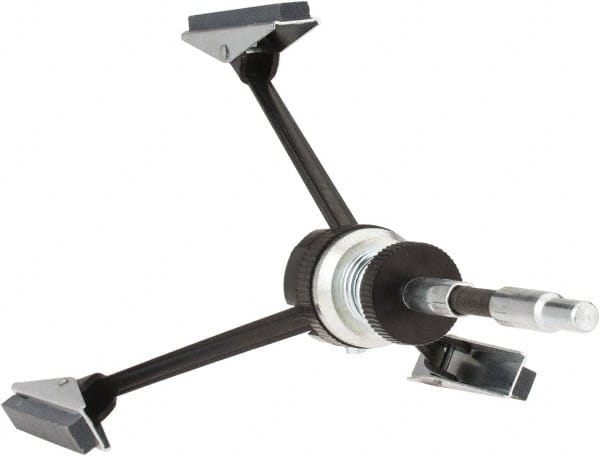Responsible Engineers: Dave, Trevor, Abraheim, Adam
Overview:
Can't put a huge aluminum cylinder on the lathe.
Can't assume the cots cylinder is perfectly smooth/uniform... it will have some imperfections and be warped.
Problem:
Screw holes are not radially symmetric (run-out tolerance is too high)
Proposed Solutions:
Get inside circular (using cylinder hone)
Cylinder Hone:
[As seen on mscdirect ^]
Allows us to clamp chuck from inside of the cylinder when radially indexing (?)
Cylinder hone extension (allows us to reach deeper into the rocket): here
Find a way to make the outside circular, then radially index how we have been
Build a new tool to attach to drill?
Use homemade woodturner to slowly turn and sand the outside?
Next Steps:
Order cylinder hone online
Replace stones with 80 grit sandpaper.
Look at homemade turning tool
Research industry solutions
Ask around about any bigger lathes on campus
Max Height: 8 feetz
Big Cylinder:
6’’ Diameter
7’ height (upper end)
Small Cylinder:
4’’ Diameter
4’ height (upper end)
Tools:
Engine Cylinder Hone
Homemade wood turner
Resources:
https://www.sandvik.coromant.com/en-us/knowledge/drilling/radial-adjusted-drilling
https://www.keyence.com/ss/products/measure-sys/gd-and-t/type/run-out-tolerance.jsp
https://www.gdandtbasics.com/circularity/
Information:
Runout tolerance = Axis offset + Total circularity
(a.k.a. how much it wobbles and how far from a perfect circle it is)
Proposed solution online: Straight surface + diameter gauge?
Gameplan:
Circularize interior using an engine hone
- Attaches to a drill and rotates three spring loaded grindstones that remove more or less material based on their spring pressure.
Circularize exterior using an improvised lathe
- Attach cylinder to a motor after the interior has been circularized (friction fit with laser cut wood circle?)
- Attach other end to a bearing so it can rotate (also friction fit with laser cut wood circle?)
- Fix a piece of sandpaper at a set diameter and move it up and down the cylinder until the entire thing matches that diameter (check tolerance at multiple locations to reduce error).
Backup method: Use a centerless grinder (more work but potentially better results)
- Cylinder sits on a rest while a grinder is rotated next to it
- A second regulating wheel is moved in to apply pressure and rotates without slipping with the cylinder
[As seen on Wikipedia ^]

